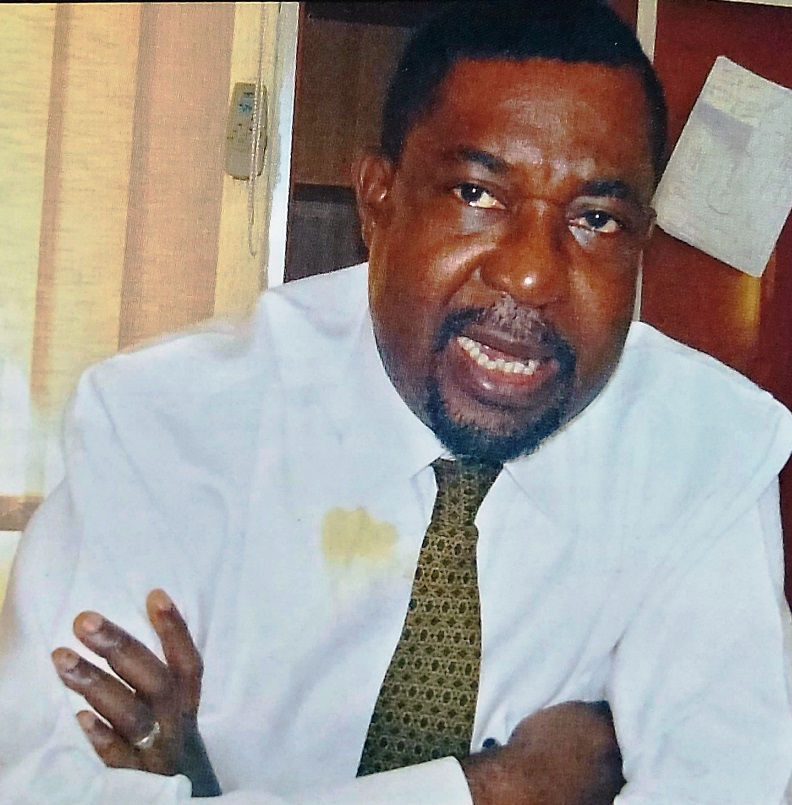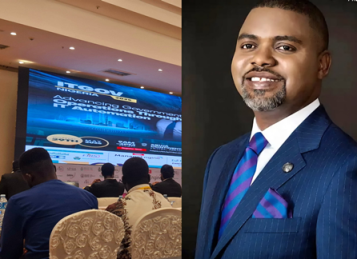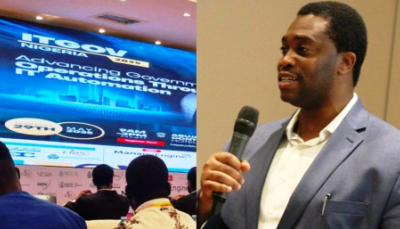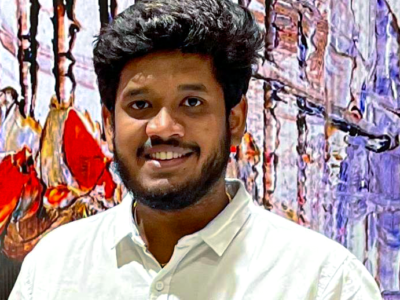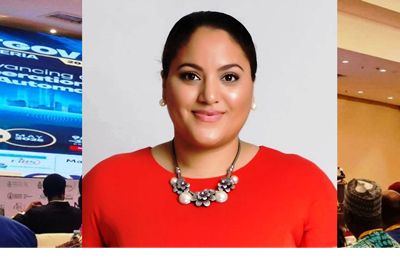Dr. Olu Aguloye, former minister of power and former boss of the Federal Road Safety Corps speak with a consumable passion on the e-government initiative, he and his colleagues at NeGST have been driving for about two years now. There was so much hype when the NeGST was launched as Nigeria’s answer to closing the distance between its government and 150 million people. Somehow, it was believed NeGST would be effectively into business in weeks but it never in months. Now, Aguloye tells IT Edge after a facility tour in the organization’s headquarters in Abuja that NeGST was sifting through the hype to build a formidable e-government platform.
It is now several months since NeGST was launched, how will you describe the objective or focus of NeGST?
Some of my colleagues here have saidthat two years after the president launched NeGST we have not done this or we have not done that. But the truth of the matter is that it’s not two years. The date is very important. NeGST was officially registered as a company on the 6th of March 2004. The president formally launched NeGST on the 8th of March 2004. That is two days after it was formally registered and there were preparations for that launch which was actually a stakeholders’ conference. The truth of the position is that NeGST was, in fact, formally inaugurated on the 1st of May 2004 by the Minister of Science and Technology. The truth again is that between that day and September 2004, funds came in only in trickle to NeGST by prospective investors and those periods were being used to develop what we call the agenda of NeGST, the strategy of operation and so on.

If you look at what has happened since May last year (2004) when it started and effectively this year (2005), it was only late December that NeGST had an office. Before then, between March 2004 and December 2004, NeGST operated in my sitting room at Lobio Crescent. The NITDA (National Information Technology Development Agency) people, the chairman of NeGST, and other group met in my sitting room. So, it was only by December that we had an official office and only this year that we moved into the office. All the work that has now become national e-government strategies were done from this office last year; maybe eight months after effectively because when we moved into this office, we only had three tables. It was the same furniture that I had in my living room that we brought here. So, it’s not two years.
Talking about focus I will take your mind back to what we call the e-government model. We thank God for that because that model is our focus, that model evolved very early in the scheme between May 10 and May 14. The former chairman and I went to United Nations Conference in Italy to present that model which I developed and that model at that time actually involved what they called the Nigerian model. The model is still on and it’s now getting very wide acceptability. In a nutshell, it encompasses the focus, which developed e-government reforms by using e-commerce activities. So, you now have e-government on one end implementing regular reports within government and you have at the other end private sector getting engaged in e-business. These two are interwoven together in such a way that all the parties win. Government eventually provides an enabling environment for further reports and government also eventually provides an enabling. environment to allow government data to be raised to a pedestal where it can become a resource value. The process will allow each data to be streamlined and standardized so that the data of one arm of government can communicate with another arm. Government allows its data to be put in a way that private sector can benefit from its operations and use. So, in the entire procedure, the citizens make the third leg, they benefit tremendously and become empowered because they get access to information and they easily get access to making investment.
NeGST appears to have been a victim of its own desire to do so many things at the same time without proper structures in place. You seem to have rushed into too many things within a very short time, which made NeGST to become too complex to manage. Too many things were not done yet to match the level of your media publicity?
I will not entirely agree with you. I am just putting things in their proper perspective to show that contrary to the feeling that NeGST was formed two years ago, it was, in fact, formed 18 months ago. As a matter of fact, NeGST did not start any meaningful operation until March this year (2005). That’s the truth of the matter. So, the NeGST that we see rather than being two years old is only a few months old. If we count from the time the board was inaugurated it will be fifteen-month-old.
Don’t you think NeGST itself helped to create that hype by creating a picture of the huge tasks, backbone, infrastructure topography and all that, it was going to accomplish within a short time frame even when those projections were unrealistic?
Let me put it this way: e-government is a matter of the moment; e-government is the direction to go and Nigerians without it going to a special IT school know it and can feel it. When the body was inaugurated as national e-government organization, the expectation became so high. For instance, they anticipated how many things that could be done with e-government. Then some of our own internal activities also added to that. For instance, when in October last year (2004) we publicly said that we will roll out by March this year (2005) we were only adding to that hype at that time. The truth is that having not been able to fully roll out by now is not a setback in any form and then it’s also not a delay. It’s not also that we are not working hard but it’s just a matter of perception. The public without any concrete reasons believed that we should have rolled out. We ourselves at one stage gave credence to that kind of belief thinking that we would have rolled out.
Now that a lot of things appear to be happening, NeGST appeared to have recovered in the last six months some of those initial public goodwill it had lost in the course of time…?
One of the problems that NeGST had before was that of the enlightened public. The enlightened public knows how e-government could operate. It knew we did not have the e-government backbone or the e-government platform and it became skeptical. For instance, an organization size of NeGST, that didn’t have an office in Abuja used the house of its top official as well as that of NITDA and was doing demonstrations for people inside hotels in Lagos did not quite exude the kind of confidence that people expected. It was easier for people to become skeptical that it will not fly than to believe it could work. It is like somebody who does not have a passport or visa or a ticket and he is talking about what he will do for you when he goes abroad for course or vacation. So long as you look at him that he doesn’t have a passport it will give you the impression that he can never do what he is talking about. Once it was found out that we had actually built a backbone that dissolved some of the criticisms. People came here in May and June to see our office and saw that we have one of the strongest IT backbones in Nigeria with a robust platform for commercial (data) warehousing and outsourcing; with two operating systems, clusters of processors and 1.2 terabyte of storage and a complete access monitoring system installed here and a network of e- applications. We had the backbone. The Minister of Science and Technology came in here on the 7th June and when he went out, he said “now I know we have the backbone”. After that the World Bank came here and its officials said very clearly in public when he was addressing all the staff that “you are now four or five steps ahead of any e-government establishment that I’ve seen in Africa”. He requested from us the details of what we have been doing. So, one of the things that paved way for us is this backbone. Between December 13 last year (2004) and May this year (2005) the period of six months, everything was put into developing this backbone. After we have done all that, we then developed the portal, which is the window to the outside world and to the backbone. So whether you want to talk to me or not you have to go to www.e-nigeria.net.ng you will see what we have done. Then I have people who are coming from different areas to try to examine that. So, it’s no longer talking to me. As I talk to you now some people are on that place checking and then you call out once in a week or for improvement twice a day. So, it’s not a static site. Then in the same year we have what we call e-incubation; programmes that are internet enabled incubated on our system to offer cushion to people who cannot afford to put on a system as sophisticated as ours but who need the system as much. We also have developed e-health, telemedicine along through NeGST working in alliance with the relevant bodies.

What is the level of relationship between the private players and the government considering the doubts people have over whether this thing will work?
One of the major reasons that this PPP (Public Private Partnership) will work is that it addresses in a way one of the problems of government-contract. Contract is one of the major issues that keep government. When you take contract away from government, government can’t do anything. Bring back contract, you restore government. That is one of the reasons I believe PPP will work because it is the structure for NeGST. Government has 10%, the strategic partners have 30%, the pioneer investors have 15%, banks and financial institutions have 40% and what we call technology technical solution providers have 5%. So, at the moment all the things you have seen here were provided by private sectors but of course riding on the good will and on the path of the federal government. That’s all federal government needs to put in, no contracts are involved and minimal participation not too small; not too less.
What areas are you looking at in the next couple of months?
Having developed all this background, we have now zeroed in on three areas. One is what we call e-hospital, the second is what we call e-campus, and the third is what we call e-trade. Because every other thing can be encapsulated, we have now put all of these into one product called e-kiosk.
The virtual hospital was developed by us and of course inside this hospital we have pharmacists, doctors, patients and all the components we have in a hospital and then when applied with the MSHIS components it will be registered in five days. As I talk to you the telemedicine that has been adopted by the society for telemedicine and e-health in Nigeria is being tested out before all the chairmen of teaching hospitals in Nigeria. On the e-campus, you can register for your courses, you can download music, you can do examination, and you can do so many things. That encapsulate everything you want to do and all the necessary requirements with schools and campuses.
As the executive vice chairman of NeGST, when you look at where you are coming from and at the kind of challenges you will likely face, are you convinced that you convinced that you will still be standing in the next 10 years?
One, this is designed to be regime independent. Two, this is designed to be service oriented. If NeGST cannot provide service, good reliable service even Obasanjo who is the father of it cannot save it. It takes good will, potential and determination to make things work. The e-leadership provided by this regime personified by President Obasanjo who is the momentum of this project cannot be quantified. But if it cannot provide those services from which it will earn money to sustain itself to pay back investors who have put money in it to make profit and who have invested to get dividends, then nobody can save it. But if it provides services, if this system provides each of the 600 schools in Oyo State as being contemplated by the governor of the state with service and each school has 30 computers minimum in a classroom. At least one classroom in each school and each school is connected to internet and parents or guardian of wards can pay the fee of the children without visiting the schools, then we are providing service. If for instance, as being contemplated in some of the states, they put telemedicine in each ward for at least two hospitals at each local government and shift people in the rural area, grant them medical attention on demand from university teaching hospital in Ibadan or LUTH or National Hospital in Abuja, then nothing is going to hurt NeGST. So, it’s a programme that will sustain itself if it works well and that is why we are spending all our energy and time to make sure it works well.


